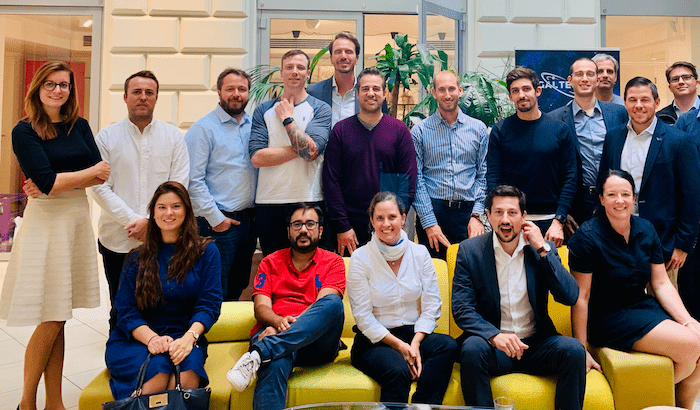
Artificial Lawyer hopes you had an enjoyable Valentine’s Day yesterday. And let’s continue with the theme of finding one’s soulmate, albeit in this case you’re at a law firm or inhouse legal function and the other party is a legal tech company.
Imagine the situation, you’re pondering how the team can solve a particular issue that technology may well be the solution to…if only you could find the right company to work with.
You’ve had a look through various directories, and even marketplaces and ‘app stores’, but you don’t seem to have found just what you need. Part of this is because after looking at a dozen or so companies your eyes start to glaze over. And even if you do find one, you’re perhaps not sure how to get started with a pilot.
Sophie Martinetz, Managing Partner, Future-Law, which helps to run the LTHV, explained to Artificial Lawyer: ‘First, you tell us your problem. You can book a free and confidential consultation with us, in English or German, and we assess with you whether your problem is a use case which fits the Fast Track Challenge.’
If you get accepted onto the Fast Track Challenge you will be matched with a legal tech provider – one of around 350 companies that LTHV has been keeping tabs on. Some of these have passed through its incubator programme, others have not. They are from around the world.
Also, Martinetz stresses, this is not just for local lawyers, but all firms and inhouse teams that want to find a legal tech solution that fits their needs.
But, match-making is not the end of it. They also help with the pilot, offering project management support during the eight-week programme.
The first day for getting a booking is on March 3rd. The link to book a short discussion with the team is: here. This will also clearly all be virtual still.

All well and good, but why do this? Martinetz, (pictured above – front, centre with law firm stakeholders and startups from a previous incubator cohort), explained: ‘The feedback we received from law firms is that they are interested in legal tech and want to use it to solve specific problems they have, but often they do not know where to start and how to manage a IT/Legal Tech project.’
‘The law firm usually does not have the organisational set up, so we provide them in the Fast Track programme with access to the legal techs, and we manage the pilot project for them based on our LTHV expertise and experience. The aim is that within eight weeks the law firm and the legal tech have carved out a solution for a specific problem, or a good basis to move the project forward.’
‘It is a win:win situation for law firms and legal techs,’ she concluded.
This is such a good idea they really should do this all year, although it’s likely quite resource-heavy in terms of the team’s time. In fact, when you look at this, one can’t help but think that there really is a long-term business idea here.
Now, there are already consultancies that will help you to pick a legal tech solution. And there are, of course, many incubators. But this approach finds a space in the middle. It is not quite so focused on selling, or using this as a precursor to you buying a much larger advisory project, it’s also not so focused on the legal tech companies. Moreover it’s not just about one type of solution, e.g. getting you to use a CLM, or pick a doc automation system – it’s for all types of legal tech solution.
Also, it’s very client-centric and asks: what is your need? Then says: let us find you a solution and let us help you get the pilot up and running.
It’s a great idea. Naturally, such projects need funding, but perhaps there is a way to keep this going all year?